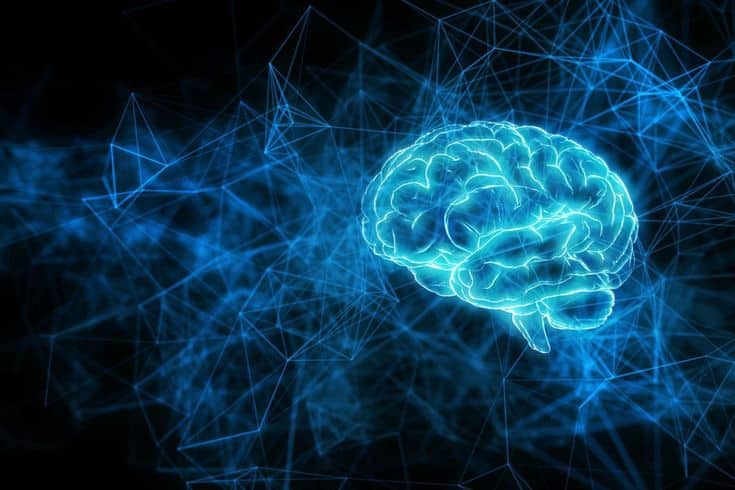Nowadays, the words “Machine learning(ML), Artificial Intelligence(AI), and Deep learning(DL)” are spreading like wildfire around us. They’ve come to have significant impact across all sectors and industries. You would agree with me that there’s not a day you don’t come across them, be it on social media, TV, and in group discussions.
Are you a beginner who is interested in deep learning? This article will enlighten you on what deep learning is all about and how to get started with it as a beginner. Let’s get started.
Table of Contents
What is Deep Learning?
It wouldn’t make sense to talk about deep learning without mentioning AI and ML. You know how as kids, we were introduced to the topic “Family” in nursery school. We know there’s a grandpa, father, and son. The relationship between AI, ML, and DL can be likened to that of a family.
In this case, artificial Intelligence(ai) is synonymous with grandpa, machine learning(ML), your guess is as good as mine, the father, and deep learning(DL), the son. From a mathematical standpoint, AI is the universal set, ML the real set, and DL the subset.
So, what is deep learning all about? Deep learning is a technique in artificial intelligence (AI) in which multiple layers of processing are used to recognize complex patterns in pictures, text, sounds and other data to produce accurate insights and predictions. It is a very powerful and valuable skill.
Deep learning entails a deep knowledge of its algorithms and techniques. Just as we have three processing units in a computer system: an input, a control unit, and the output. There are three major layers in deep learning. Data is entered through the input layer, processed through the hidden layer, and the final result/prediction is made through the output. Isn’t that a cool stuff to learn about?
According to World Salaries, the average salary for a deep learning engineer ranges from 1.6 million naira to 5.7 million naira in 2023. Aside from this, knowing deep learning makes you a trailblazer contributing to the world’s technological advancement. This comes with a lot of prestige and honor.
Isn’t that amazing? Are you thinking, how can I become a deep learning engineer? How can I master deep learning algorithms and techniques? Keep reading as you will get your answers in the next section.
6 Things You Should Know Before You Dive Into Deep Learning
-
Prepare yourself
Figure out why you want to learn deep learning. It’s tempting to jump right into a course after reading this blog post, talking with your friends, or perhaps after a seminar on tech(like Devfest). The motivation gained from such events drives excellent energy. As good as it is, you risk falling into a trap of frustration.
You need to define your goal. Digging into deep learning algorithms and techniques will require a lot from you. To call a spade a spade, it will drain you. I’m not scaring you. I’m getting you ready for what you are about to go into. Knowing your why helps to keep you going. For example, your reason can be to increase your earning power, which is great.
-
Prepare your computer
There are two major devices you need to learn ML, the first is yourself, and the second is your computer. You have prepared yourself, now your computer. The best operating system for deep learning is Windows 10/Windows 11. A minimum of 8GB GPU memory is required. You can learn more here.
-
Find a mentor
Get a mentor. Having a mentor brings clarity to your career path. It gives you a safe psychological environment to lean on. You will also get to network with more professionals. Mind you, when choosing a mentor, you need to choose someone superior in knowledge to you.
Only the greater can bless the lesser. You can search for your mentor via environment, seminars and conferences, and social media sites like LinkedIn, Twitter, and Facebook groups.
To approach your mentor, you need to praise their work; that is, don’t just approach without knowing what they do at least two important things about them. It could be an award won, a celebration of their birthday, anniversary etc. And you should respect their time by going straight to the point.
Read also: Choosing a Mentor: Factors to Consider for the Best Results.
-
Research more on deep learning
Read research papers on popular deep learning techniques and models. Studying deep learning techniques can be compared to how the body grows; it’s never ending, and you keep on learning. Don’t be turned off. You will enjoy it. Imagine building cool chatbots like Gpt-4.
In an interview, Andrew Ng, co-founder of Coursera and deep learning AI, advises to dedicate time to study research papers on models at least two per week. He said he does this every Saturday, which enables him to stay consistent.
-
Be ready to practice as you learn
Don’t just learn, do. It is the doing that matters and makes the difference. Act on whatever you know, whether self-taught, or online course, and be ready to practice the concepts. This helps you build your portfolio. You should also upload your projects on GitHub.
-
Search job roles
Lastly, you will need need to search for job roles to enable you to demonstrate what you have learnt. You can look up job sites like Indeed, LinkedIn, Glassdoor etc. On the sites, enter deep learning engineer job roles and select entry-level positions. This provides you with options that are very relevant to you.
Read also: A Beginner’s Guide to Object-oriented Programming.
Getting Started With Deep Learning
To study deep learning, there are three primary areas you need to cover to become a deep learning expert. You need basic mathematical knowledge, basic programming knowledge, and machine learning concepts.
-
Basic mathematics concepts
For deep learning, you need good knowledge of multi-variable calculus, probability and statistics, linear algebra and differential calculus. Calculus is the mathematical model upon which intelligent algorithms are built. It helps to learn and optimize models.
Probability and Statistics will allow you to access the performance of different models and choose the most suitable for a given task. Linear algebra provides better intuition for how algorithms work.
-
Python for deep learning
First and foremost, you need to have a strong foundation in base Python. You need to master topics like variables, lists, tuples, dictionaries, strings, comparison operators(e.g., <,>, ==), Boolean operators and Boolean expressions(e.g. and, and not) for loops and functions. These topics give you a basic knowledge of Python.
Now, you need to understand libraries in Python such as Pandas (for data handling), Numpy( base for everything), matplotlib( for visualization), Scikit-learn etc. Now, onto the next stage, machine learning.
Read also: Python for Beginners: Advantages of Learning Python Programming Language.
-
Understanding machine learning
It’s not necessary to learn ML before deep learning; from the second stage you can jump into deep learning. However, you will be saving yourself a lot of headaches if you understand machine learning before deep learning.
In machine learning, you will understand data wrangling, modeling and evaluation. Also, you will learn deep knowledge of algorithms suitable models and will be able to determine the correct learning method to train a model.
You will encounter concepts such as supervised learning, unsupervised learning and reinforcement learning algorithms. These algorithms include linear regression, logistic regression, SVM, KNN, decision trees and K-means clustering.
Hello, don’t worry about the names of the algorithm yet. When you dive into it, you will know they are a piece of cake. To study ML, you will find a link to courses below and textbook recommendations will be listed.
Read also: Full Guide on How to Learn Machine Learning From Basics to Pro.
Best Textbooks to Learn Machine Learning
- Machine learning for absolute beginners by Oliver Theobold
- Introduction to machine learning with Python: A Guide for data scientist by Andreas C Muller and Sarah Guido
- Machine Learning in Action by Peter Harrington
If you dedicate enough time, about 6 hours per day, you will complete machine learning within two months.
Deep Learning is a subset of machine learning that mirrors how the human brain works. While learning, you would come across words like deep learning algorithms, deep learning techniques, neural networks etc.
All these words are terms used to describe how deep learning works. You can learn deep learning techniques and algorithms by applying to an online course, reading a book and physical tutoring (tech hub, personal mentoring).
Some deep learning courses:
You can check out the three courses listed below to start your learning. These courses are taken by top engineers like Andrew Ng.
Examples of textbooks for deep learning;
- Deep learning from scratch: Building with Python from first principles by Seth Weidman, 2019.
- Deep Learning by Yoshua Bengio, 2015.
- Dive into Deep Learning by Zachary Lipton, 2023.
Join our Whatsapp community to access opportunities and resources that will fast-track your career growth.
Wrapping up
Deep learning algorithms find applications in self-driving cars (Tesla), chatbots (Gpt-4), facial recognition (smartphone), and speech recognition (like Google Docs speech recognition). Typical job roles in deep learning include software engineer, data analyst, software developer, natural language processing engineer etc.
As a deep learning engineer, you can work in companies like Amazon, Meta, Microsoft, Hubspot, Nvidia, and OpenAI. These companies combine deep learning techniques with other innovations to build and improve their system.
Mastering deep learning shouldn’t take much time; you are good to go within six months. It can be the best decision that will change your life completely.
Subscribe to our newsletter to receive notifications of our latest posts on Tech, Lifestyle, Entrepreneurship, Campus etc.
About Author
-
Adeniyi Imisioluwa is a freelance content writer in the SaaS and Tech niche.
He crafts compelling contents that resonates with your target audience.
When he's not writing, he is reading or stuck on analysing stocks.
Latest entries




4 comments
Hi,
I hope this email reaches you well! I am just wondering if you are still the one to contact about putting a guest post on this site: https://insight.ng/
We’ll pay you when my links are live.
If you could let me know if you can help me with this, that would be awesome, thank you!
Hi, Kalan.
For guest posts, kindly send a mail to [email protected]. Thank you
Thank you for this piece, it was really enlightening. I feel pumped 😅
Well done 👍🏾
You’re welcome.